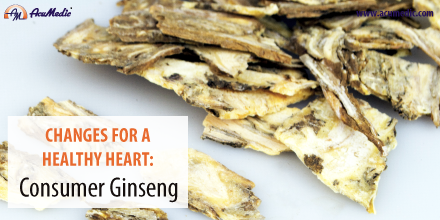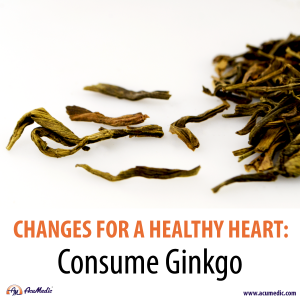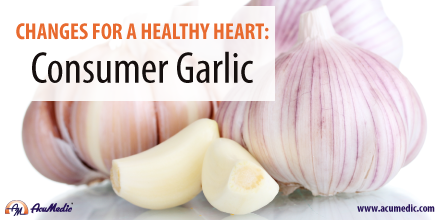February is Heart Health Awareness Month and so we want to call attention to the significance of cardiovascular health in Chinese Medicine.
Too many people think they can wait until old age to worry about heart disease. This is a dangerous common belief as cardiovascular disease accounts for one in four of all UK deaths and around seven million people are living with it. It is now one of the world’s biggest killers, and numbers are steadily rising.
The good news is that most of us have more control over the health of our hearts than we may realise. Most cases of heart disease are preventable and you can reverse damage to your arteries and clear away arterial deposits by adopting a heart-healthy lifestyle. Everyone needs to take the simple steps that will protect them.
We at AcuMedic encourage you to keep your heart healthy and lower the risk of heart disease by making the right choices to feel better and improve your quality of life by following these steps below.

1. ASSESS YOUR FAMILY HISTORY
If you have close relatives (parents, grandparents, aunts, uncles, siblings) who have had health problems related to the heart before age 65, you may be prone to develop harmful build-up in your arteries at a greater rate than someone with no such history. You also may find it harder to keep your cholesterol levels within an acceptable range without medication. You should view a family history of heart disease as a signal to be aware about the lifestyle choices that influence heart health and to get a regular heart health check-up.

2. MAKE TIME FOR FUN
A healthy Heart is not only necessary for our body to function but also our mental wellbeing. In Chinese medicine, each organ is associated with an emotion. The Heart is related to joy, and so the Heart needs to be happy and excited. Make time to enjoy life by ensuring you are laughing often, getting pleasure from care-free activities and benefiting from healthy relationships. This will allow for balance in your emotional health and mental health. However, like all emotions, it is important to avoid excess, such as the joy experienced through highs when inducing drugs. Too much joy can have a detrimental effect on the Heart.

3. MANAGE YOUR BLOOD PRESSURE
People with high blood pressure or diabetes have higher rates of heart disease, and if you add unhealthy cholesterol levels to high blood pressure and/or diabetes, the risks for heart disease increase significantly. Research shows that people who follow professional advice to lower blood pressure and who take steps to keep their diabetes under control could protect themselves from future heart attacks. Acupuncture has been found to be particularly helpful in lowering blood pressure. For example, a German study in 2007 showed that acupuncture significantly reduced blood pressure after treatment. To maintain lower blood pressure levels, regular treatment would be necessary.

4. REDUCE STRESS
Stress is a normal part of life. But if left unmanaged, stress can lead to emotional, mental and even physical problems, including heart disease, high blood pressure, chest pains, or irregular heartbeats. Dr Zengzhi Wan points out “when a person is under constant stress, the Liver struggles to offer proper support to the Heart as its energetic functions, which include controlling the smooth flow of blood and emotions, are imbalanced”. Numerous studies have demonstrated the considerable benefits of acupuncture in the treatment of stress, anxiety and mental health. Our doctors also suggest Tui Na, Qi Gong exercises, herbal medicine, meditation and acupressure as additions to a healthy lifestyle that should help to reduce stress.

5. IMPROVE SLEEP
Poor sleep has been linked with high blood pressure, atherosclerosis, heart failure, heart attacks, stroke, diabetes and obesity. Researchers have shown that getting at least eight hours of sleep is needed for good heart health and getting less than eight hours of sleep can put you at a greater risk for developing heart disease. If you struggle getting enough sleep, Acupuncture would be worth a try as it has proven successful in treating a wide range of sleep problems without any of the side-effects of prescription or over-the-counter sleep aids. Treatment using acupuncture for sleep problems focus on the disharmony within the body that is causing the insomnia. Therefore, those who use acupuncture for insomnia achieve not only better sleep, but also an overall improvement of physical and mental health.

6. EAT BREAKFAST
Ancient Chinese medicine promoted having three meals a day, with the morning meal eaten at about 7am. Keeping regular dining hours was believed to keep you safe from diseases. Today’s research has proven this advice to be spot on. Researchers at Harvard University found that having breakfast was crucial for good heart health as research showed skipping breakfast increased your risk of heart attack by as much as 27 per cent. This is because skipping breakfast means your body is put under extra pressure as the overnight fast while you sleep is not broken. Over time this could lead to resistance to insulin, which can result in diabetes, high cholesterol or high blood pressure, all causes of heart disease. So start the day right and make sure your grabbing something to fuel your day.

7. RESIST LATE NIGHT SNACKING
Research has also shown eating late is even worst for your heart than skipping breakfast, increasing your chances of heart disease by 55 per cent. The ancient Chinese practiced refraining from eating late and before sleep as they considered this action to cause a burden on the digestive system. As Dr. Lily explains “In Chinese medicine the Heart is paired with the small intestines. Irregular eating habits, such as eating too late, causes stagnation of food. This obstruction to the stomach caused by food gives rise to phlegm heat which upsets the Shen (spirit). Shen lives in the blood vessels, part of the heart system, and is nourished by the blood. Therefore, if Shen is disturbed, heart disease may emerge.” If you find yourself hungry late in the evening, opt for a light snack that is easy to digest.

8. MAINTAIN A HEALTHY WEIGHT
People who are overweight tend to eat foods high in saturated fat, which, in turn, promotes harmful deposits in the arteries. Obesity is associated with diabetes, high blood pressure and coronary artery disease, all of which increase the risk of developing heart disease. Even if you are otherwise healthy, being overweight still places you at a greater risk of developing heart failure. Studies have shown that excess body weight alone, not just the diseases associated with it, can also lead to heart failure. You must take measures to lose the extra weight if you are more than 30 percent over what is considered to be your ideal weight. Adjust your eating so you are making healthier choices and increase your exercise. If you feel lazy and lack energy, try a course of acupuncture to put you back in balance, reduce food cravings and increase energy.

9. EXERCISE REGULARLY
The heart depends on a constant supply of blood to feed it the oxygen and nutrients it needs to keep pumping. Exercise not only increases the oxygen in the blood and keeps the blood circulating, but also makes the heart stronger and more efficient. Studies also show that when you exercise, every step you take increases HDL, the good cholesterol. With almost half of UK adults admitting they never do any moderate physical exercise, it’s no surprise many of us are at risk of heart related illnesses. If you don’t have a lot of time, you can still fit in enough exercise to make a difference. The British Heart Foundation (BHF) recommends just 10 minutes of exercise a day to drastically reduce the risk of a heart attack or stroke.

10. QUIT SMOKING
Smoking is a major cause of coronary artery disease. About 20 per cent of all deaths from heart disease are directly related to cigarette smoking. Acupuncture cannot make you give up smoking but can help reduce the withdrawal symptoms, such as food cravings, irritability, insomnia and anxiety. It does this by soothing your nervous system, making you feel relaxed and stimulating your feel-good hormones, such as endorphins.
Chinese healthcare professionals have always supported light and uncomplicated diets. This belief has been confirmed by modern day science, as many studies have shown consumption of heavy, greasy, and sweet foods over a long period of time often leads to diseases, a weak body and even early death. This is especially true when looking at heart health.
To follow a heart-healthy diet, start including the following in your meal plan…

11. DONG QUAI (Angelica Sinensis)
Dong quai root has been used in Chinese medicine for more than a thousand years. It is traditionally used to treat blockages and help increase blood flow. One study suggested that a combination of dong quai and astragalus (Astragalus membranaceus) decreased symptoms of chest pain in a small group of people with heart disease.

12. GINGKO
Ginkgo has a long history of being used in Traditional Chinese Medicine to treat illnesses related to blood. Research has proved it improves blood circulation by expanding blood vessels. In addition, it inhibits blood from forming clots and stops free radicals from causing damage to vascular walls. Avoid if you are taking medication for high blood pressure and blood-thinning medications.

13. BEANS
Ever heard the song lyrics ‘beans, beans they’re good for your heart…’ Well this is true, as Chinese medicine recommends eating black soya beans, kidney beans and aduki beans as they are considered to be nourishing to the blood. What’s more, more recent studies have proven one portion of pulses a day significantly reduces the risk of heart disease, reducing cholesterol levels by 5 per cent.
14. HAWTHORN BERRIES
Widely known as one of the best cardiovascular tonics, hawthorn berries help relax the arteries by reducing fat and mucus accumulation, improve circulation, purify the blood and aid healthy blood pressure. In Germany hawthorn is very popular since studies conducted by its Federal Ministry of Health confirmed that it gently dilates coronary arteries to help circulation within the heart itself.

15. GARLIC
Garlic is used in many Chinese culinary dishes, but it has also been used for thousands of years in Traditional Chinese Medicine as a treatment for a wide range of conditions, including illnesses related to the Heart. Modern science supports its use and has proved garlic reduces cholesterol and reduces blood pressure.
16. BILBERRY
A close relative to the cranberry, the bilberry fruit is said to prevent build up of plaque in the arteries. According to French researchers Bilberry fruit contains anthocyansides, which is a type of flavonoid that helps with blood flow by strengthening capillaries.
17. CAYENNE
If you like your food hot and spicy, try adding cayenne pepper to your list of heart-healthy herbs. Cayenne has been used in Traditional Chinese Medicine as an oral remedy as it is remarkable for getting blood circulation going. A study in 2009 found that capsaicin, the ingredient that gives heat to cayenne peppers, caused an 85 per cent reduction in the death of heart cells. It also makes its way through any mucus that might be blocking veins, which in turns helps to lower blood pressure. Some even claim it can stop a heart attack in about 60 seconds.
18. BLUEBERRIES
Having just a handful of blueberries a day can reduce the risk of getting heart disease. A study done by Florida State University saw significantly lower blood pressure results in those participants who were given blueberry powder, compared to those who were taking a placebo who showed no changes.

19. DARK LEAFY VEGETABLES
Dr Susan Gong reveals “Dark and leafy vegetables play an important part in heart health.” Chlorophyll, found in dark green leafy vegetables (the pigment which gives plants their green colour), is excellent to nourish the blood. This is because chlorophyll contains Magnesium, which is highly beneficial to the Heart. Swiss chard, collard greens, spinach, dark cabbages, watercress and kale are all high in chlorophyll.
20. BITTER FOODS
“In Traditional Chinese Medicine bitter is the taste associated with the Heart and so foods with a bitter taste will support heart health” says Dr Lily. Bitter foods include bitter melon or grapefruit.
